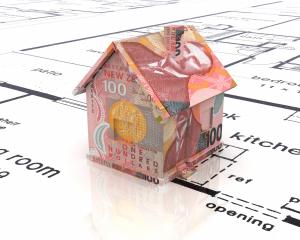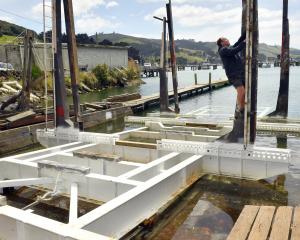
Bayleys Metro managing partner Mark Stevens said it was clear now the majority of houses were going to unconditional offers, compared with about four years ago.
First-home buyers appear to be taking that advice as their share of the market has increased to a quarter of total purchases in the city during 2020 compared to what it had been in the past 15 years (22%) .
Dunedin was also one of the few main centres in the country where it was likely still cheaper to buy than it was to rent.
Mr Stevens said the competition for not enough properties meant buyers had to "put themselves in the best position possible" to buy and that meant getting an unconditional offer in to have a chance.
"Fifteen years ago we might find one buyer on the market and we’d have to work with them back and forwards and the negotiations would go on for days and would be conditional ... but now ... with multiple offers on every property, purchasers need to put their best foot forward."
He said buyers should be proactive and get a building inspection done in days.
"If people get a few days to do their due diligence ... there’s no reason they can’t get in an unconditional position."
The people who were at a disadvantage were those whose offer had to be conditional because it needed to be subject to finance from a bank, Mr Stevens said.
The market was extremely buoyant in Dunedin, he added, pointing to a recent sale of an empty 0.1ha (quarter-acre) section for $390,000.
"That ... would have only been $100,000 five years ago."
Mr Stevens that said his company did try to slow sales down so that more buyers had time to get a good offer ready and that usually resulted in a better sale price for the vendor.
First-home buyers now have a record share of the property market, according to a new report from property analyst firm CoreLogic.
The report shows for 2020 to date, first-home buyers now make up 25% of the Dunedin market share, up from an average share of 22%.
The median price paid for houses in Dunedin over 2020 was about $450,000.
Nationally first-home buyers made up 24% of the market share, up from the past 15 years’ average of 21%.
Dunedin, along with Tauranga, was one of the few parts of the country where it was cheaper to buy, based on the median price paid by first-home buyers if they had a 20% deposit.
According to CoreLogic’s calculations it was about $745 a fortnight for a mortgage, compared with the typical median rent of $812 per week.
Nationally it was $47 more a week to buy than to rent.
CoreLogic senior property economist Kelvin Davidson said while it was still tough for first-home buyers, the report proved many were still finding a way in.
"It’s not easy, it never has been easy but what it’s showing is there’s still an appetite there to get into the market to get on to the property ladder and that market share is a record high.
"Despite all the challenges that are there, first-home buyers are clearly still pretty keen to buy."
He said many were using their KiwiSaver to pull together the deposit, as well as compromising on location and type of property.
"As to the types of dwellings [first-home buyers] are purchasing, houses have been the dominant category this year, accounting for 78% of all their purchases, higher than the house share across all buyers of 73%. Flats have also been slightly more important at 14%.
"For comparison, in 2019 as a whole, houses accounted for 80% of first-home buyer purchases and flats were 12%, so this year has seen a slight shift in preferences towards smaller dwellings."
Mr Davidson said first-home buyers were also entering the market at a higher point than might be expected.
"So far this year, first-home buyers have paid a [national] median price of $565,000, which is a bit below the median for all buyers, but it’s a lot higher than the lower quartile price for all buyers.
"That lower quartile price is where the bottom 25% of properties come in and there is this perception that that’s where first-home buyers would be trading ... but they’re actually about $130,000 above that bottom tier."
He said despite the data showing a strong stream of first-home buyers in the market, compared with other buyers, it did not account for those first-home buyers who were unsuccessful.
"What we don’t know and what we’ll never know is how many are missing out."
— Additional reporting RNZ
Comments
Pretty easy money being an agent then at the moment isn't it. Very lucrative too, for a lot less work than it used to take.
Perhaps they could take a cut to help the first home buyers get over the line? Perhaps they could work with buyers to share the cost of a builders report, instead of making multiple would-be first home owners, shell out $500 each, for every house they offer on? Perhaps they could offer up the disclosures about the property BEFORE would-be buyers spend money on due diligence, instead of five minutes before an offer is signed, after many hundreds have been spent?
Every time I see an article highlighting a percentage increase of the housing market, it's a reminder that the agent's commission has risen by the same percentage, in a market that requires almost no work on their behalf. Imagine if welfare, minimum wage, average wages or super increased by 10% a year.... for 20 years!
I went to 4 open houses several months back, and EVERY agent rolled up in either a new Audi or BMW.. The trouble is, as the old saying goes, that you can only fit so many sheep into one paddock.
Until you've worked in Real Estate don't assume its "pretty easy money". There's nothing easy about working 7 days a week and weekends as the many Real Estate Agents I know do.












